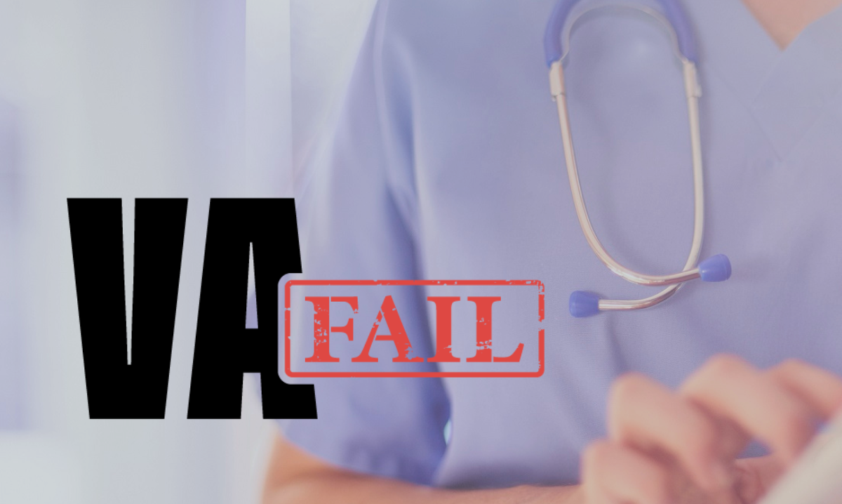
#VAFail: VA staff ‘routinely missed’ opioid use disorder diagnoses
Medical paperwork offers health care providers information about a patient’s current circumstances, and their history. Those records are vital and could dictate the course of care.
But at the Department of Veterans Affairs, doctors often ignore this information. Veterans may be dying as a result.
VA practitioners missed opioid history
As Military Times reported, a VA Office of Inspector General (IG) report published in June found VA officials “routinely missed ― or struggled to check ― prior opioid use disorder (OUD) diagnoses when developing treatment plans for troops leaving the service.”
IG investigators looked at two separate groups of VA patients who were discharged from the military with an opioid use disorder (OUD) diagnosis marked in their Department of Defense (DoD) medical files. As the IG report noted, the VA “expects providers” to check this history during intake evaluations. When OUD is identified, providers must “document this information in an encounter note, a progress note, and the problem list.”
The IG found VA providers neglected these important steps. According to the Military Times:
“Investigators discovered that only 19% of the 1,362 OUD-afflicted veterans from Group 1 had opioid dependence flagged during their initial screening with the Veterans Health Administration. Just over half of the 45 patients in Group 2 had OUD listed on the VA ‘problem list,’ an electronic database used to identify pressing health concerns.”
“Failure to identify a diagnosis of OUD could pose a risk to patients, including the danger of reintroducing opioids to a high-risk population,” the IG said.
Indeed, in some instances, that is exactly what happened. In fact, VA providers prescribed at least 3% of these patients opioids even though they had a documented history of OUD.
Veterans at risk for opioid use disorder
The VA’s neglect is compounding already-tragic circumstances.
Veterans are “especially vulnerable to opiate dependence or addiction and its most dangerous effects,” Military Times noted, and are twice as likely to die from an accidental overdose as nonveterans. Drug overdose mortality among veterans increased 53% between 2010 and 2019.
Prescribing medication with opioids to patients who have an OUD will increase these numbers.
Neglecting to check OUD history also can interfere with future treatment. “The failure to identify and document a patient’s OUD history or diagnosis in encounters, progress notes, and problem lists could decrease the likelihood of providers using this medically relevant information in future clinical decision-making, placing patients at risk for adverse outcomes, such as overdose,” the IG report said.
In some instances, that documentation could have saved a life.
Naloxone is a medication often administered to patients who are suspected of having an opioid overdose. The IG found just 35% of the patients in its study who died from an opioid-related overdose were offered or provided this potentially life-saving drug.
“A lack of provider knowledge of an established OUD diagnosis may have contributed to naloxone not being provided to some patients,” the IG concluded.
Failed attempt at reform
In 2018, the VA, the DoD, and the Department of Homeland Security launched a “joint action plan” designed to improve care for members of the military transitioning out of service. The plan included special initiatives for veterans prone to suicidal tendencies, including those suffering from substance abuse.
As the IG report makes clear, the VA has failed to do better.
The investigators said VA health care providers’ failures “stemmed from unclear expectations and faulty databases,” Military Times said.
More than half of the VA providers surveyed told IG investigators they did not think they were supposed to check DoD records before accepting former service members for treatment.
Nearly half of VA providers, 45%, said they had never received training regarding how to navigate an electronic health record (EHR) database linking DoD and VA medical records. Incredibly, 56% said they could not even find the DoD information in the EHR system. (The VA has experienced problems with EHR systems in the past. As we noted in June, at least four veterans died because of a botched rollout of a new records system.)
The IG offered five recommendations and warned, “The challenges associated with leaving active duty and the risk of suicide for veterans within the first year after discharge from DoD highlight the importance of identifying and documenting OUD.”
Veterans need access to substance use and mental health care that works for them and puts them on a path to healing. If the VA cannot provide that, veterans need the option to seek care at facilities that can.
Learn more about community care options.




